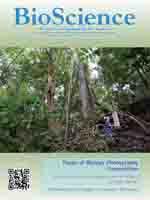Authors in this journal have recommended a new approach to the conduct of biodiversity science. This data-driven approach requires the organization of large amounts of ecological data, analysis of these data to discover complex patterns, and subsequent development of hypotheses corresponding to detected patterns. This proposed new approach has been contrasted with more-traditional knowledge-based approaches in which investigators deduce consequences of competing hypotheses to be confronted with actual data, providing a basis for discriminating among the hypotheses. We note that one approach is directed at hypothesis generation, whereas the other is also focused on discriminating among competing hypotheses. Here, we argue for the importance of using existing knowledge to the separate issues of (a) hypothesis selection and generation and (b) hypothesis discrimination and testing. In times of limited conservation funding, the relative efficiency of different approaches to learning should be an important consideration in decisions about how to study biodiversity.
How to translate text using browser tools
1 May 2012
Studying Biodiversity: Is a New Paradigm Really Needed?
James D. Nichols,
Evan G. Cooch,
Jonathan M. Nichols,
John R. Sauer
ACCESS THE FULL ARTICLE
It is not available for individual sale.
This article is only available to subscribers.
It is not available for individual sale.
It is not available for individual sale.

BioScience
Vol. 62 • No. 5
May 2012
Vol. 62 • No. 5
May 2012
biodiversity
deduction
induction
machine learning
science




